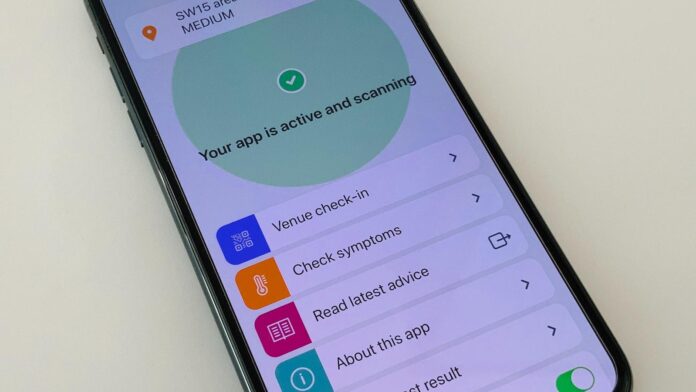
Rabies is a deadly virus that is spread to people through the bite of an infected animal. Once symptoms of rabies develop, the disease is almost always fatal. It is important to recognize the symptoms of rabies so that treatment can begin as soon as possible. Knowing the signs of rabies can also help you take preventative measures to protect yourself and your loved ones.
In this article, we will discuss the various symptoms of rabies and what you should do if you suspect you or someone you know may have been exposed to the virus. It is important to seek medical attention immediately if you think you may have been bitten by an animal that could potentially carry the rabies virus.
Initial Symptoms
The initial symptoms of rabies can be quite vague and may be mistaken for other illnesses. These symptoms can include fever, headache, and general weakness or discomfort. Some people may also experience discomfort or a prickling or itching sensation at the site of the bite. These symptoms can last for days or even weeks before progressing to more severe symptoms.
If you have been bitten by an animal or suspect that you have been exposed to rabies, it is important to seek medical attention immediately. The sooner you begin treatment, the better chance you have of preventing the virus from progressing to the more severe symptoms.
Flu-Like Symptoms
As the rabies virus progresses, flu-like symptoms may develop. These can include fatigue, muscle aches, and a general feeling of illness. You may also experience a loss of appetite and vomiting as the virus attacks the digestive system. These symptoms can be quite severe and may make it difficult for you to carry out your daily activities.
If you are experiencing flu-like symptoms and have been bitten by an animal, it is important to mention this to your healthcare provider. They can test for rabies and determine the best course of action for your treatment.
Neurological Symptoms
One of the most severe and characteristic symptoms of rabies is the development of neurological symptoms. These can include anxiety, confusion, agitation, and hallucinations. Some people may also experience insomnia and an increased sensitivity to light and sound. As the virus progresses, paralysis and difficulty swallowing can occur, leading to the well-known symptom of foaming at the mouth.
If you or someone you know begins to exhibit these symptoms, it is crucial to seek emergency medical attention. Once neurological symptoms develop, the chances of survival are extremely low. Prompt treatment can help to alleviate symptoms and improve the chances of survival.
Hydrophobia
Hydrophobia, or fear of water, is another hallmark symptom of rabies. This fear can be severe and can be triggered by the simple act of trying to drink water. The spasms in the throat muscles that occur with hydrophobia can make it extremely difficult for a person to swallow, leading to a fear of drinking. This can quickly lead to dehydration and further complicates the already serious symptoms of rabies.
If you notice someone exhibiting an extreme fear of water, especially if they have been bitten by an animal, it is important to seek immediate medical attention. Treatment should begin as soon as possible to try to alleviate symptoms and improve the chances of survival.
Paralysis
As rabies progresses, the virus attacks the nervous system, leading to paralysis in the muscles, especially in the face and throat. This can lead to difficulty speaking and swallowing, and in severe cases, can result in respiratory failure. Paralysis is a late-stage symptom of rabies and is typically an indicator of a poor prognosis.
If you or someone you know begins to exhibit signs of paralysis, seek emergency medical attention immediately. Once paralysis develops, the chances of survival are extremely low, and prompt treatment is crucial for improving the chances of survival.
Prevention of Rabies
As with many diseases, prevention is key when it comes to rabies. The best way to prevent rabies is to avoid exposure to the virus altogether. This can be accomplished through responsible pet ownership, avoiding contact with wild animals, and seeking prompt medical attention if you are bitten by an animal.
If you know that rabies is prevalent in your area, it may be wise to consider getting a rabies vaccine. This is particularly important if you work with animals or regularly spend time in areas where rabies is common. The rabies vaccine is highly effective at preventing the virus and should be considered by those who are at higher risk of exposure.
Seeking Treatment
If you suspect that you have been exposed to rabies, it is crucial to seek medical attention immediately. Once symptoms develop, the disease is almost always fatal, so prompt treatment is essential. Your healthcare provider can assess your risk of rabies and determine the best course of action for your treatment.
If you have been bitten by a potentially rabid animal, it is important to seek emergency medical attention. Your healthcare provider can clean the wound and may recommend a series of rabies vaccinations to prevent the virus from taking hold. Prompt treatment can greatly reduce the chances of developing rabies and improve the chances of survival.
Conclusion
Rabies is a deadly virus that is almost always fatal once symptoms develop. It is important to recognize the symptoms of rabies so that you can seek prompt medical attention if you suspect you have been exposed to the virus. Prompt treatment is essential for improving the chances of survival and alleviating symptoms. By understanding the symptoms of rabies and taking preventative measures, you can protect yourself and your loved ones from this deadly virus.


















